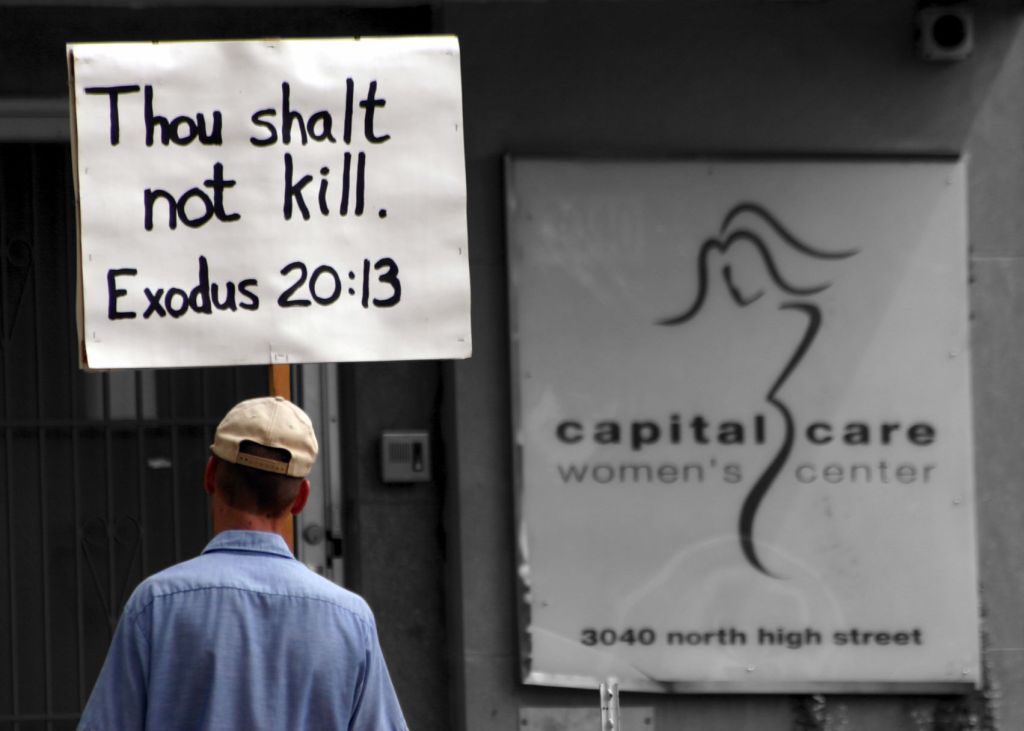Trump’s order could be opening salvo in abortion battle
Published 6:00 pm Tuesday, January 24, 2017

- MorgueFile
WASHINGTON – President Donald Trump’s executive order barring federal funds for foreign groups performing abortions raised hopes among some advocates and members of Congress that he’ll take more steps to weaken access to the procedure.
Reproductive rights are at the forefront of debate since hundreds of thousands of women took to the streets here last weekend, in part, for fear of losing access to abortion.
This Friday, abortion opponents arrive here for an annual “March for Life.”
And on Tuesday, days after the 44th anniversary of the U.S. Supreme Court’s landmark opinion in favor of abortion access, Democratic senators grilled Trump’s nominee to head the Department of Health and Human Services, Rep. Tom Price, R-Ga., a staunch abortion opponent.
Much of the attention on abortion since Trump’s election has focused on his opportunity to nominate a justice to an empty seat on the Supreme Court, potentially setting the stage for a repeal of Roe v. Wade.
However, Trump’s order Monday illustrated his leverage to act unilaterally in the meantime, say advocates and legal experts.
Sen. James Lankford, R-Okla., co-chairman of the Congressional Prayer Caucus, said in an interview that he’s encouraged by Trump’s initial action.
Janel George, director of federal reproductive rights and health for the National Women’s Law Center, which supports abortion rights, said, “There’s a lot of things that might be at risk administratively.”
Among the goals of abortion opponents is eliminating an Affordable Care Act requirement on insurers to offer free contraceptives, along with wider exemptions for employers who don’t offer plans covering contraception or abortions due to their moral or religious objections.
Advocates and legal experts say the Trump administration could also make way for states to no longer allow the use of Medicaid funds for groups such as Planned Parenthood that perform abortions.
Indiana University Law Professor Dawn Johnsen noted a number of novel anti-abortion proposals such as a Texas law requiring burial of embryonic and fetal tissue that is now being challenged in court, and a Kentucky law requiring women to watch sonograms of their fetuses before abortions.
With staunch abortion opponents in high places – including Vice President Mike Pence and Price – she said the Trump administration could go beyond the usual strategies to limit access.
“I think what’s being missed about the Trump administration is that rather than a repeat of the Reagan administration, they’ll be finding creative new ways to restrict access to abortion and contraception,” she said. “I don’t think we can imagine what they’ll come up with.”
For the moment, abortion opponents are focused on removing Obamacare’s requirement that insurers cover contraceptives.
Abortion opponents believe some forms, including the Plan B pill, are tantamount to inducing abortion — a claim that abortion rights advocates strongly dispute.
Trump and Republicans have vowed to repeal and replace the Affordable Care Act. It’s unknown if that will include repealing the requirement to cover preventative care. A proposal released Monday by several Republican senators – including Johnny Isakson, of Georgia, and Shelley Moore Capito of West Virginia – would removed mandates for what insurers must cover.
Contraception coverage could be at risk because it was not designated as a mandatory preventative service by Congress, but rather by an executive order issued by President Barack Obama.
Before a replacement for Obamacare is found, which might take more than a year, Trump could end the requirement for contraceptive coverage simply by rescinding Obama’s order, said Travis Wussow, vice president for public policy at the Ethics & Religious Liberty Commission of the Southern Baptist Convention.
During his confirmation hearing, Price was asked by Sen. Sherrod Brown, D-Ohio, if he could set aside personal feelings and promise to allow women access to free contraception that they and their doctors agree upon.
“Contraception is absolutely imperative for many, many women,” he said, “and the system that we ought to have in place is one that allows women to purchase the kind of contraception they desire.”
Still, Heather Boonstra, public policy director for Guttmacher Institute, which supports abortion rights, said she expects the guarantee to be targeted.
“I wouldn’t underestimate what they will do,” she said.
Eliminating it will mean “fewer choices for contraception or a higher cost” for millions of women, she said.
Another top issue is expanding the ability of employers to not offer insurance benefits that cover abortion procedures or contraceptives, if they are morally opposed.
Abortion opponents complain that those with moral objections should be able to buy insurance that does not cover the procedure.
In June, the Department of Health and Human Services’ civil rights office rejected an appeal by anti-abortion groups over a California requirement that insurers cover the procedure.
Lankford said he wants the exemption, known as a conscience clause, expanded.
Wussow, of the Ethics & Religious Liberty Commission, said, “The question is, ‘Are you going to be forced to pay for something you find morally objectionable?’”
In a separate case before the Supreme Court, a religious order, the Little Sisters of the Poor, is battling a requirement to identify employees and its insurance provider to the government.
Religious groups may opt out of providing contraceptive coverage, but the government uses the information to coordinate coverage through a third party.
The religious order said disclosure goes against its religious beliefs.
On a separate front, Congress and Trump could stop federal funds for Planned Parenthood. Trump also could rescind an order by Obama barring states from withholding federal family planning funds from clinics, such as those operated by Planned Parenthood, that perform abortions.
Federal law already bars the use of federal funds to perform most abortions.
But more than a dozen states, including Texas, have moved to entirely defund clinics that perform the procedures, regardless of whether the money is specifically used for them.
Kery Murakami is the Washington, D.C. reporter for CNHI’s newspapers and websites. Contact him at kmurakami@cnhi.com.
###



